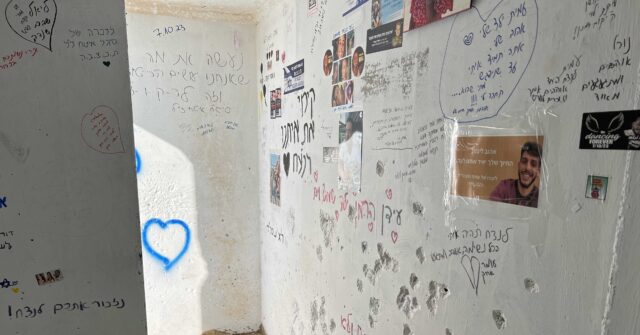On Thursday, the Israel Defense Forces (IDF) announced the successful elimination of a Hamas commander, Mohammad Abu Itiwi, who played a significant role in the violent October 7, 2023, attack that targeted civilians fleeing the Nova music festival. According to the IDF, Abu Itiwi was not only implicated in the mass murder of innocent individuals but also held a position with the United Nations Relief and Works Agency (UNRWA), raising serious concerns about the involvement of UN agency personnel in acts of terrorism. The operation that led to his demise was a joint effort between the IDF and the Israel Security Agency (ISA), underscoring the coordinated military efforts to neutralize threats posed by Hamas operatives entrenched in both military and civilian structures.
Iditwi’s involvement in the attack on October 7 was particularly gruesome; he was reportedly responsible for leading an assault on a bomb shelter located on Route 232 in southern Israel, where many individuals sought refuge from the barrage of violence. The IDF highlighted that throughout the ongoing conflict, Abu Itiwi was directly involved in directing multiple attacks on Israeli Defense Forces (IDF) troops in the Gaza Strip, showcasing his active engagement in hostilities that have plagued the region. In the aftermath of the attack, officials from COGAT (Coordinator of Government Activities in the Territories) called for an investigation into the implications of UNRWA staff being directly associated with such heinous acts, indicating a potential breach of international humanitarian standards.
The brutal nature of the October 7 attacks saw many young civilians attempting to escape to safety, only to fall victim to unrelenting violence. Observers noted that numerous shelters—concrete structures designed to provide safety amid ongoing rocket threats—became active sites of terror, as Hamas militants sought to eliminate individuals seeking refuge. Survivors of the assault recounted harrowing stories, with many finding themselves captured and taken hostage by Hamas fighters. One act of bravery emerged amid the chaos, as Aner Shapira, an off-duty soldier, demonstrated exceptional courage by intercepting grenades and teaching others to do the same before ultimately losing his life.
In the aftermath, the memorialization of the sites where the attacks occurred has become a somber fixture in Israel. The shelters, previously intended as safe havens, now stand as poignant reminders of the tragedy that unfolded on that day. Colorfully painted over to honor the fallen, these structures have transformed into memorials that draw thousands of visitors, illustrating a collective remembrance of the lives lost. As communities grapple with the trauma of these events, the memorials serve as significant focal points for grief and reflection.
The timing of the IDF’s announcement coincided with the anniversary of the October 7 attack on the Hebrew calendar, signaling a period of mourning and remembrance for the victims and their families. The importance of this date resonates deeply within the community, serving as a reminder of the existential threats faced by civilians amid ongoing conflicts in the region. This marked anniversary not only commemorates lives lost but also emphasizes the broader issue of security and the continuing need for vigilance against terrorism.
In the broader context, discussions surrounding the role of UNRWA and its employees have gained traction, especially given allegations of complicity or inadequacy in addressing links between humanitarian organizations and terrorist activities. As Israel continues to confront threats from Hamas and other militant factions, there is increasing pressure to scrutinize the functions of international organizations operating in conflict zones. The stark contrast between humanitarian missions and militant actions presents a complex challenge, demanding careful investigation and oversight to ensure that aid efforts do not inadvertently support violent extremism.
In conclusion, the IDF’s operation against Mohammad Abu Itiwi encapsulates the ongoing struggle against terrorism in the region, while highlighting the tragic consequences for civilian populations caught in the crossfire. The call for accountability regarding the role of organizations like UNRWA reflects a pressing need to ensure that humanitarian efforts remain separated from the influences of violent factions. As Israel mourns the victims of the October 7 attacks, it simultaneously reinforces its commitment to national security and the protection of its citizens, reminding the world of the cost of violence and the enduring hope for peace amid persistent conflict.

